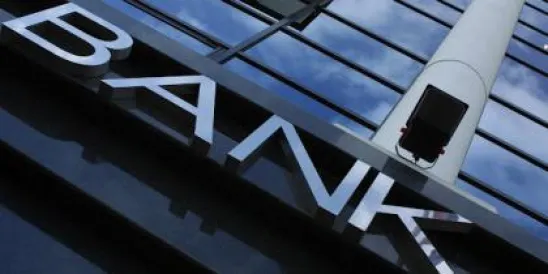Covered financial institutions (such as banks and credit unions) have been swept into a new “fair chance” initiative designed to further reduce barriers to individuals with certain convictions.
The James M. Inhofe National Defense Authorization Act for Fiscal Year 2023 (NDAA), signed by President Joe Biden on December 23, 2022, contains Section 5705, the “Fair Hiring in Banking” provisions, which statutorily protects applicants and employees with certain criminal convictions, establishes new rules for expungements and de minimis offenses, and creates a more applicant-friendly consent application process.
Background
Originally signed into law in 1950, Section 19 of the Federal Deposit Insurance Act (FDIA) prohibits anyone from working for a Federal Deposit Insurance Corporation (FDIC)-covered institution who has been convicted of a criminal offense involving dishonesty, a breach of trust, or money laundering, or who has entered into a pretrial diversion program for such an offense. Individuals are barred from:
-
Becoming, or continuing as, a director, officer, employee, or controlling stockholder, or agent, of an insurance depository institution;
-
Owning or controlling any insured depository institution; or
-
Participating, directly or indirectly, with the affairs of any insured depository institution, without the prior written consent of the FDIC.
Similarly, Section 205(d)(1) of the Fair Credit Union Act (FCUA) contains prohibitions on employing a person who has been convicted of any criminal offense involving dishonesty or breach of trust or who has entered into a pretrial diversion or similar program in connection with a prosecution for such offense from participating, directly or indirectly, in the conduct of affairs of any insured credit union, except with prior written consent of the National Credit Union Board. A three-member Board of Directors oversees the operations of the National Credit Union Administration (NCUA) by setting policy, approving budgets, and adopting rules and regulations. Each Board member is appointed by the president and confirmed by the Senate. The president also designates the chairman of the NCUA Board.
Key NDAA Provisions
The NDAA narrows the scope of crimes subject to Section 19 of the FDIA and Section 205(d) of the FCUA and the circumstances under which the FDIC’s or the NCUA’s written consent for a waiver is required.
The NDAA provides that an individual no longer needs the consent of the FDIC or NCUA to become employed with an insured bank or credit union for “Certain Older Offenses.” These offenses apply where:
-
It has been seven years or more since the individual committed the offense; or
-
The individual was incarcerated with respect to the offense and it has been five years or more since the individual was released from incarceration; or
-
The individual committed the offense when they were 21 years of age or younger, if more than 30 months have passed since the sentencing for the offense occurred.
These are lower thresholds than recognized under prior law and FDIC and NCUA rules. In addition, other de minimis offenses may be exempt, subject to the FDIC and NCUA’s rulemaking capabilities and meeting the following criteria:
-
“[P]unishable by a term of three years or less confined in a correctional facility”;
-
Offenses for writing insufficient funds checks must require that the aggregate total face value of all insufficient funds checks (regardless of the number of convictions or program entries at issue) be $2,000 or less; and
-
Other lesser offenses, like the use of a fake ID, shoplifting, trespass, fare evasion, and driving with an expired license or tag, if at least one year has passed since the conviction or program entry for such offense.
With the greater opportunity for “exempting” de minimis offenses, covered financial institutions should be able to navigate the hiring process more easily for individuals with lesser, minor convictions than previously.
This new law also codifies that the potentially disqualifying employment standards set forth in Section 19 of the FDIA and 205(d) of NCUA do not apply to candidates that have had an otherwise covered offense expunged, sealed, or dismissed. An “order of dismissal” would be a final order filed in a criminal or civil case that effectively terminates the legal proceedings. Certain states (e.g., Connecticut) have passed “clean slate” laws, resulting in the expungement or sealing of certain criminal conviction records after a specified period lapses, expanding already the potential applicant pool.
Further, the Fair Hiring in Banking provisions define the term “criminal offense involving dishonesty” under FDIC Section 19 (which would otherwise disqualify an applicant) to be “an offense under which an individual, directly or indirectly— (I) cheats or defrauds; or (II) wrongfully takes property belonging to another in violation of a criminal statute.” This definition also “includes an offense that Federal, State, or local law defines as dishonest, or for which dishonesty is an element of the offense.” Consistent with the fair chance tenets of this law, this definition excludes (i) “a misdemeanor criminal offense committed more than one year before the date on which an individual files a consent application, excluding any period of incarceration” and (ii) “an offense involving the possession of controlled substance.”
The provisions also codify the “rehabilitation” standards the agencies must apply in considering any consent application made by an individual or covered financial institution on behalf of an individual. The FDIC and NCUA are required to conduct an “individualized assessment” (consistent with the Green factors discussed in the Equal Employment Opportunity Commission’s 2012 Guidance on Arrest and Conviction Records) that takes “into account evidence of rehabilitation, the applicant’s age at the time of the conviction or program entry, the time that has elapsed since conviction or program entry and the relationship of individual’s offense to the responsibilities of the applicable position.” The agencies are also required to consider factors such as the individual’s employment history, letters of recommendation, completion of substance abuse, job preparation or educational programs, and other relevant mitigating evidence. In reviewing a consent application, a regional office must “primarily rely on the criminal history record of the Federal Bureau of Investigation” and “provide such record to the applicant to review for accuracy.”
As with any new process, the FDIC or NCUA may issue further guidance on how financial institutions should navigate these changes. Since employers are still left, at times, with a maze of federal, state, and local employment law considerations, Fair Hiring in Banking takeaways should include:
-
Fair chance hiring requires consistency and ensuring equal employment opportunities for all. Now that employers can consider a wider pool of applicants, processes need to be reviewed for legal compliance, as well as to ensure fair hiring is in fact taking place.
-
Training key personnel on the changed process designed to meet labor needs while enhancing diversity, equity, and inclusion efforts is important to ensure legal compliance, as well as to ensure the organization’s culture is aligned with the fair chance hires.
-
Employers need to understand the variety of federal, state, and local laws affecting the “fair hiring in banking” landscape. New “ban the box” laws continue to be enacted across jurisdictions, and “clean slate” laws are trending. Before making an adverse hiring decision, these factors, along with state criminal conviction considerations, may need to be considered.
Financial institutions are encouraged to consult their legal support teams to further understand how the NDAA could affect hiring processes as a whole, but especially as it relates to affirmative action efforts and compliance.
(Law clerk Nicholas Bonelli contributed significantly to this article.)




 />i
/>i


